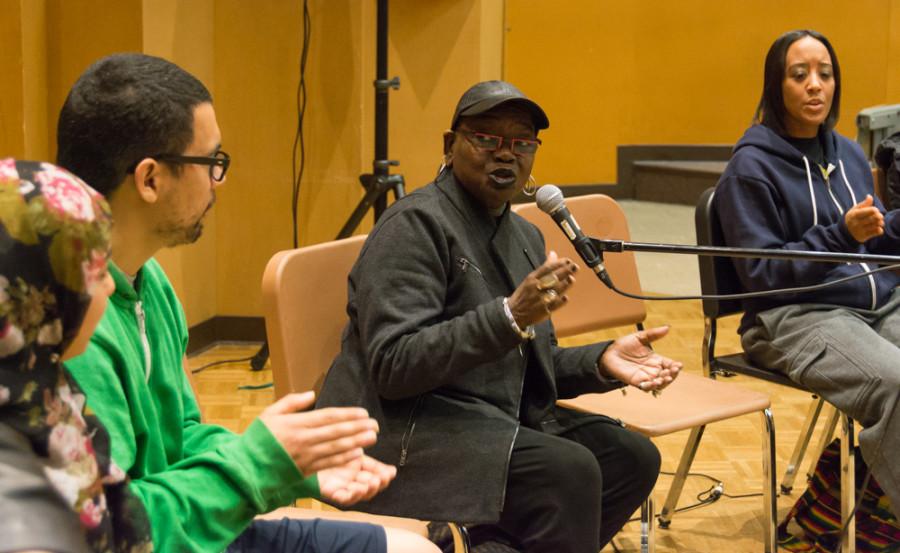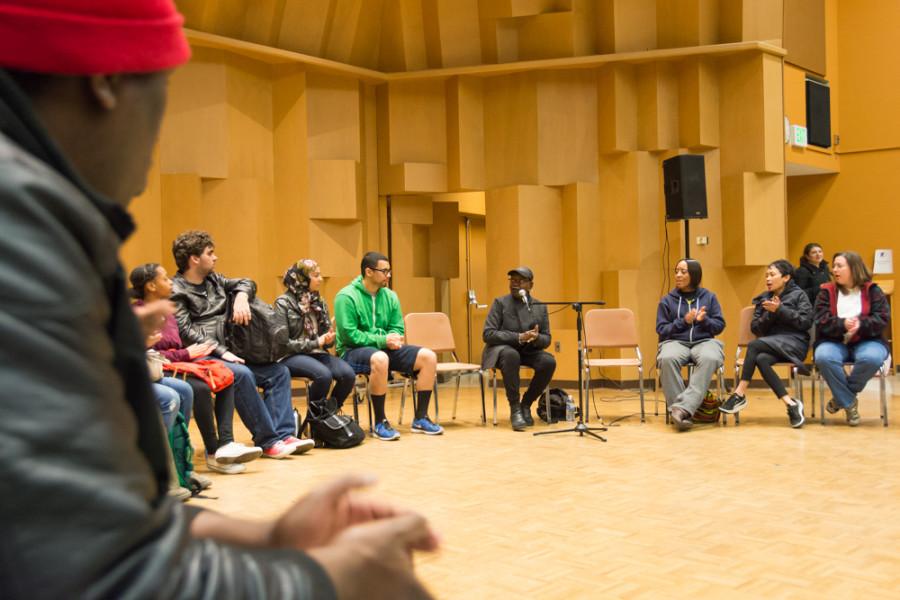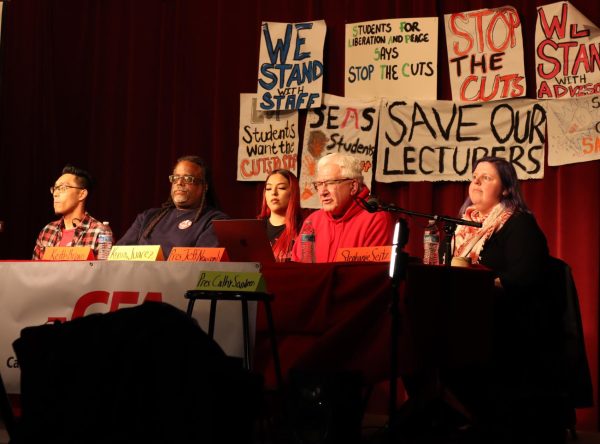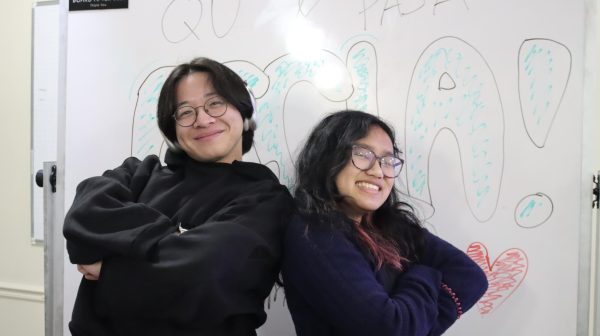Traditional African music graces campus
Ysaye Barnwell, former member of the performance ensemble group, Sweet Honey On The Rock, shows audience members how to keep a rhythm on Tuesday in the Music Building on the Hayward campus.
Former member of the performance ensemble group Sweet Honey On The Rock, Ysaye Barnwell, led “A participatory singing journey through African American history” on Tuesday night, as part of the CSUEB Week of Inclusive Excellence by the Office of Diversity.
Her visit drew faculty, staff, students, and community members, who all had the opportunity to sing traditional African music with Barnwell, who retired from the group two years ago. Barnwell’s visit was paid by a $4000 grant through the Office of Diversity and first ever CSUEB Diversity Officer, Dianne Rush Woods.
“I am an avid fan, so it is a pleasure to have her here,” Woods said. Barnwell said she is hopeful that these types of visits can help educate people who, “usually don’t understand the connection between Africa and the United States and why things are the way they are.”
She also stressed to the audience the importance of “worldview” and the differences between the “view of the world” which according to Barnwell are, “two completely different things and most people don’t know.”
Barnwell was adamant that African Americans have a slightly different worldview than a “eurocentric” worldview and that changes the way music is created and performed.
“We didn’t lose music, we brought it with us to the United States,” Barnwell said. “Music was created to help us endure the journey and tell what it was like, but we lost it.”
Barnwell is thankful that some of the early African music was able to become a part of an oral history since it was never written down for preservation. Chant as well as call and response techniques were a big part of the African oral history and Barnwell got the audience involved and taught them some of the syllables and sounds.
She used some traditional African techniques to teach the audience how to sing a traditional West African chant.
“Some of the earliest music had no words or syllables they were just sounds similar to where they lived in the rainforest,” Barnwell said. “They believed God is in everything and can be heard through the rainforest.”
The audience chanted and sang with Barnwell as she guided them and structured the pattern of the sounds.
“Some people feel if we were to take music completely out of the world things would just go on normally,” Barnwell said. “However, for us, music ties everything together, it is life.”
Barnwell showed the audience several styles and techniques utilized by people from all over the continent of Africa and how they changed when they came to the United States.
“I really just came to dance but this is cool,” attendee Michael Edwards said. “I’m gonna sing too.”













